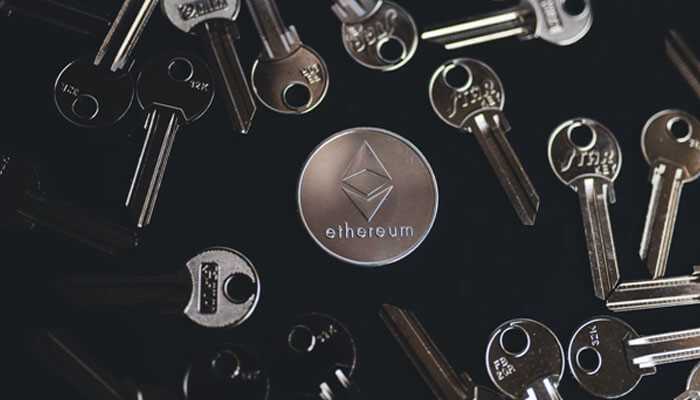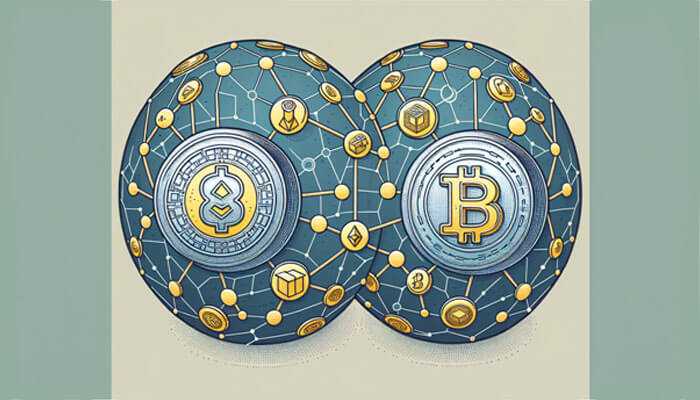Creating crypto tokens, much like baking a cake, involves several steps. You can code a new blockchain, modify the code of an existing blockchain, or use a blockchain designed to host tokens from different developers. But what if you’re not a master chef or, in this case, a coder? Well, there are token generator platforms that facilitate the creation of tokens with just a few clicks. Once created, tokens are validated by the network’s miners, resulting in the birth of a new token.
The Lifecycle of Token Development
The journey of a token from concept to market is an exciting one. It involves several important steps, including:
- Hiring an experienced crypto token developer for technical creation
- Drafting a comprehensive whitepaper
- Ensuring legal compliance
- Selecting the suitable blockchain platform
Each of these steps is crucial in bringing a token to market successfully.
Before launching a token, it’s vital to follow these steps:
- Test it on a testnet to resolve any issues.
- After testing, verify the source code for transparency.
- Upload the token to the mainnet, which involves transaction fees.
- Follow up with comprehensive verification and auditing to ensure robust security.
Once the token is deployed, distribution and strategic marketing turn critical to reach the target audience and encourage adoption. Enhancing token visibility through online platforms such as a dedicated website, social media presence, and listings on token platforms can attract initial investors and bolster credibility.
Keeping the token updated and providing ongoing customer support is key to adapting to market conditions and addressing user concerns.
Raising Funds Through Token Sales
Token sales, such as Initial Coin Offerings (ICOs) and Security Token Offerings (STOs), are the lifeblood of many crypto projects. They offer an avenue to raise funds while also providing investors with an opportunity to get in early on potentially profitable ventures.
The Ethereum blockchain, with its support for smart contracts, allows for complex token sales mechanisms, enabling the distribution of tokens to investors securely and transparently. A detailed whitepaper outlining the project’s vision, tokenomics, and technical details is crucial to secure investor interest during a token sale, especially if the project aims to create its blockchain.
However, token sales necessitate adherence to legal frameworks, including licensing, tax implications, and reporting obligations.
Tokens vs Coins: Distinguishing the Two
Although crypto tokens and coins may seem interchangeable, they differ considerably. Crypto coins are the native assets of a blockchain, while tokens operate on existing blockchains and offer a range of functions beyond transactions.
The Unique Functions of Crypto Tokens
Crypto tokens are versatile digital assets, often referred to as crypto assets. They can represent both tangible assets like gold and intangible assets such as voting rights, customer loyalty points, or other cryptocurrencies. In sectors like art, tokens facilitate the fractional ownership of artworks, enabling artists to ensure authenticity and manage provenance through blockchain technology.
Furthermore, tokens are often used to activate smart contracts or decentralized applications, becoming integral to the operation of these platforms. Staking tokens is a way for holders to participate in the security of a network while also earning transaction fees as rewards.
In essence, non-fungible tokens can serve as a method of investment, storing value, or facilitating purchases within the blockchain ecosystem.
Crypto Coins as Transactional Units
In contrast to tokens, crypto coins primarily serve as a store of value and medium of exchange within their respective networks. A crypto coin, like Bitcoin or Ethereum, can facilitate economic activities such as trade and purchases, with transactions completed in minutes, offering speed and cost advantages over traditional financial systems. These two coins are often used in crypto casinos such as 777 Bet Casino as a matter of payment.
Certain cryptocurrencies, like Bitcoin, are seen as a hedge against inflation due to their capped supply, contrasting with potentially unlimited fiat currency issuance. Currency tokens such as Litecoin, an early fork of Bitcoin, demonstrate faster block times and a larger maximum supply, intended to be a quicker and cheaper option for transactions.
The Utility of Tokens in Blockchain Ecosystems
In the expansive world of blockchain, tokens are the Swiss Army knives. They offer a multitude of utilities across various sectors, including:
- Real estate
- Stock trading
- Healthcare
- Streamlining transactions
- Democratizing access
Accessing Decentralized Finance (DeFi) with Tokens
Tokens are your passport to the world of decentralized finance (DeFi). Serving as interoperable digital assets, they allow for seamless transactions like lending and swapping in a more secure environment than traditional finance. DeFi platforms utilize tokens for a variety of functionalities, such as:
- Powering blockchain networks
- Operating decentralized markets
- Paying transaction fees
- Enabling governance through DAO voting systems.
Moreover, smart contracts are instrumental in reducing transaction costs for complex DeFi operations, including derivatives and bonds trading.
Enabling Decentralized Governance
Governance tokens are the game-changers in the blockchain world. They decentralize decision-making in blockchain projects, allowing token holders to:
1. Vote on proposals that determine the project’s direction
2. Empower community members to actively engage in the management and evolution of a project
3. Avoid leaving decisions solely in the hands of a centralized authority.
These tokens can be earned by contributing to the community or demonstrating loyalty, incentivizing active participation within the ecosystem. From influencing the direction and rules of financial platforms to voting on a range of issues like user interface changes and fee structures, governance tokens are paving the way for a more democratic and inclusive future.
Storing and Managing Your Tokens
Though owning crypto tokens can be thrilling, storing and managing them securely is of equal importance. After all, you wouldn’t leave your treasure chest unlocked, would you?
Choosing the Right Crypto Wallet
Selecting an appropriate crypto wallet is akin to finding the right home for your tokens. Hot wallets are connected to the internet, designed for easy access and convenience, while cold wallets store funds offline for increased security. Depending on your needs, you can opt for browser wallets, mobile wallets, or desktop wallets, each offering different features and benefits.
For those who prioritize security, hardware wallets like Ledger and Trezor offer robust protection by keeping funds offline, and paper wallets provide a physical alternative but come with risks of loss or damage. When selecting a wallet, consider the security-convenience trade-off, the wallet’s multi-token and blockchain support, and whether the wallet suits your transaction frequency or storage needs.
The Significance of Hardware Wallets
Hardware wallets are like personal vaults for your digital assets. They provide high security for digital assets by storing cryptocurrencies and private keys offline, making them resistant to remote hacking attempts.
Transactions with hardware wallets require physical interaction, such as connecting via USB, enhancing security, and preventing unauthorized remote access.
Navigating the World of Tokens: Risks and Rewards
Even though the world of crypto tokens provides countless opportunities and potential rewards, it also carries its share of risks. It’s essential to navigate this landscape with a well-informed compass, understanding the risks and rewards associated with investing in tokens.
Assessing the Value of Tokens
Evaluating a token’s value involves more than just looking at its price. It’s like assessing a diamond – you need to consider its carat (size), cut (quality), clarity (transparency), and color. For tokens, this means evaluating the project’s team, goals, and strategies, and checking the token’s market capitalization, trading volume, and supply metrics.
Community engagement and sentiment, as observed on social media channels and forums, can also impact the perceived value and success of a token. The token’s distribution mechanism and the underlying blockchain infrastructure can significantly affect its value.
Risks Involved with Token Investments
Investing in tokens is accompanied by risks. The high volatility of cryptocurrencies makes them less effective as a store of value, leading to significant and unpredictable price changes that can erode investment value rapidly. In addition, the regulatory landscape for crypto tokens is complex and evolving, leading to potential legal challenges.
Investors also face risks of project failure and fraudulent schemes. As a result, it’s essential to be cautious and do thorough due diligence before investing in any token.
Summary
From understanding the intricacies of crypto tokens to navigating their potential risks and rewards, we’ve journeyed through the exciting world of crypto tokens. Remember, tokens are not just digital assets – they are the superheroes of the blockchain universe. With their unique functions, they are reshaping our world in unexpected ways. So, the next time you come across a crypto token, you’ll know exactly what powers it holds!
Frequently Asked Questions
What’s the difference between crypto coins and tokens?
Coins function as a form of money, while tokens can be used for a variety of purposes. Coins are native to their blockchain, while tokens are created on top of existing chains.
What is the difference between a security token and cryptocurrency?
The crucial difference between a security token and a cryptocurrency is its purpose and use. One uses cryptocurrency as a currency, while a security token represents ownership or a stake in an asset, similar to owning stocks or bonds.
Are tokens worth anything?
Yes, tokens are worth something because they hold value for various reasons, such as being a part of different types of crypto assets.
What is a crypto token?
A crypto token is a digital asset that operates on an existing blockchain network, enabling developers to create a cryptocurrency without having to construct a separate blockchain.
How are crypto tokens created?
A new blockchain or existing blockchain’s code can be modified, or a token-hosting blockchain can be used to create crypto tokens. This provides flexibility and options for developers to choose the most suitable approach for token creation.




